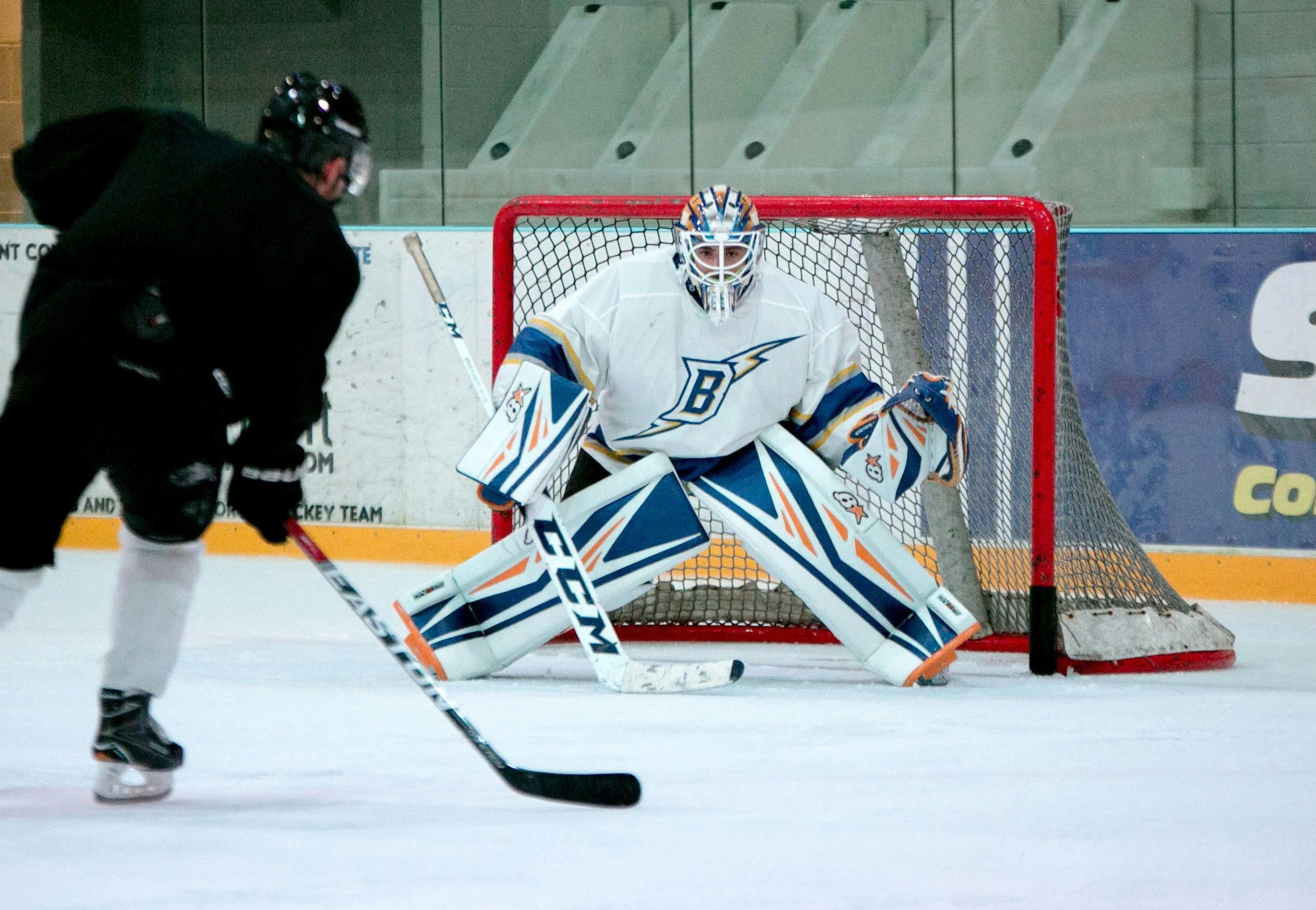Sports Psychology in NYC: Mental Health Strategies from the Locker Room to Everyday Life
Performance anxiety isn’t just for professional athletes. Whether you’re stepping onto the ice, into the boardroom, or onto a stage, your mental game can make or break you. Pressure shows up everywhere in life — job interviews, presentations, exams, first dates, or difficult conversations. Your stomach churns, your mind races, and your body reacts like it’s about to run a race.
As an ice hockey goalie, I’ve defended the crease during championship games with my heart pounding so loud I could barely hear the whistle. I still remember the icy chill of the rink, the sound of the puck slamming against the boards, and the weight of knowing my team was counting on me. In those moments, what got me through wasn’t just skill — it was the mental work I’d done long before stepping on the ice. The same preparation that helps athletes stay calm under pressure can also help in everyday life.
The Hidden Mental Game
On the surface, sports are about physical skill. But beneath every game is a constant mental battle — one that can make or break performance.
Athletes often deal with:
Perfectionism and fear of mistakes
Burnout from overtraining or constant competition
Self-doubt after injuries or losses
Sound familiar? These challenges aren’t unique to athletes. High performers in any field — students, executives, parents, artists — experience the same stress. The difference is that athletes train their minds as much as their bodies.
If you’ve been thinking about therapy but aren’t sure if your stress “counts,” remember that mental performance is mental health. The same tools that help athletes thrive under pressure can help you too.
Lessons from the Locker Room: Strategies That Work Anywhere
1. Pre-Performance Routines
Before the whistle blows, athletes follow a consistent routine — stretching, deep breathing, visualizing plays. These rituals signal the brain and body that it’s time to perform.
Try this in everyday life: Before a presentation, interview, or stressful conversation, take 3–5 minutes to center yourself. Step away from your phone, breathe deeply, and set an intention for how you want to show up.
2. Visualizing Success
Athletes often “play the game” in their mind before stepping on the field. This mental rehearsal builds confidence and prepares the brain for action.
Everyday application: Picture yourself delivering that presentation calmly, answering interview questions with clarity, or having that hard conversation with empathy. The brain responds to mental practice like it does to physical practice.
3. Managing the “What If” Spiral
In sports, overthinking can lead to hesitation — and hesitation can cost the game. That’s why athletes use “next play” thinking: if something goes wrong, they immediately focus on the very next action.
Try it: When you catch yourself spiraling into “what if” scenarios, shift your attention to the next small step you can take. It keeps you moving forward instead of getting stuck.
4. Recovery Is Non-Negotiable
Athletes schedule rest days and recovery activities to avoid burnout. High performers outside of sports often skip this step, pushing themselves until exhaustion forces a break.
Make it a habit: Protect your downtime like you protect important meetings. Rest isn’t a reward — it’s a critical part of long-term success.
Burnout: The Silent Opponent
Burnout doesn’t show up overnight. It builds slowly through chronic stress, lack of rest, and unrealistic expectations. Signs include:
Irritability and mood swings
Loss of motivation
Persistent fatigue
Feeling emotionally “numb”
Prevention starts with balance. Set realistic goals, take breaks, and ask for support before you hit the wall.
Coaching Your Mind
Mental performance isn’t about perfection. It’s about learning to manage pressure, recover from setbacks, and stay connected to your goals in a sustainable way.
At Aspire Psychotherapy, our sports psychology and performance therapy services help athletes, performers, and high achievers strengthen their mental game while taking care of their mental health. Whether you’re struggling with performance anxiety, burnout, or just want to perform at your best, therapy can give you the tools to stay balanced under pressure.
Based in New York City, we work with athletes and performers of all levels — from students to professionals. You don’t have to wait until you’re in crisis to benefit.
You can’t always control the game, but you can train your mind to play it well.
Sports Psychology in NYC – FAQs
Do athletes really need therapy?
Yes — therapy helps athletes manage performance anxiety, build resilience, and recover from setbacks. Even elite athletes use sports psychologists as part of their training.
Can sports psychology help me if I’m not a pro athlete?
Absolutely. Sports psychology strategies apply to anyone under pressure — students, professionals, performers, or anyone facing high-stakes situations.
What’s the difference between sports psychology and regular therapy?
Sports psychology focuses on the intersection of mental health and performance. At Aspire, we combine evidence-based approaches like CBT with mental skills training tailored to your goals.
About the Author
Brie Scolaro, LCSW, is a licensed clinical social worker and co-director of Aspire Psychotherapy in New York City. They specialize in sports psychology, performance coaching and anxiety therapy in NYC for athletes, performers, and high achievers. Brie is also an ice hockey goalie and brings both professional expertise and lived experience to helping clients strengthen their mental game on and off the field. Start therapy with Brie →
